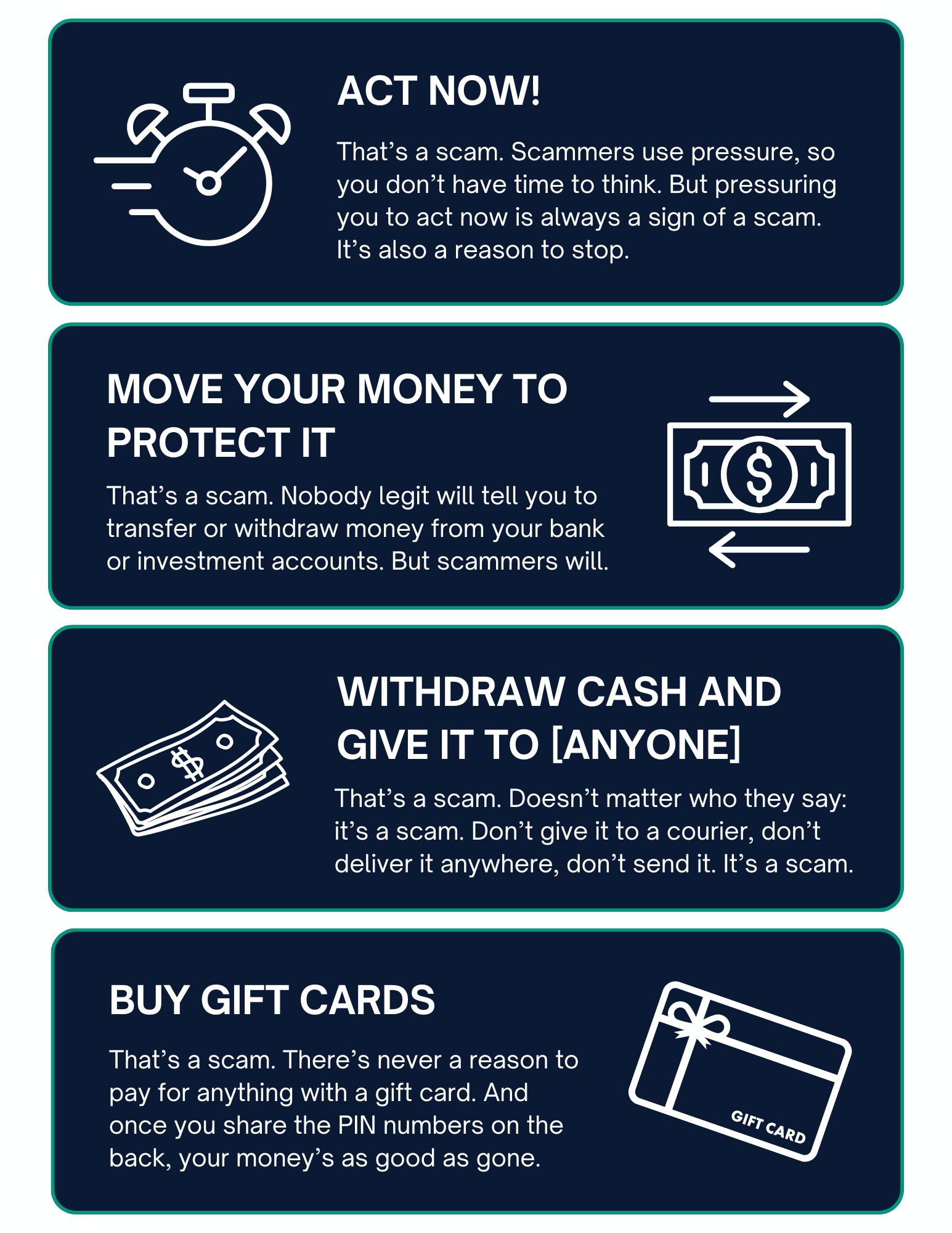Please know we will never ask you for this information. If you receive a call from the bank where they are requesting this information, please hang up and notify us immediately.
 Please be aware of an increase in scammed emails and alerts that ask for private login information.
Please be aware of an increase in scammed emails and alerts that ask for private login information.
Bank of Clarke will never ask for your password or access to your computer. Do NOT give anyone your personal information.
If you have any questions, please contact your local branch or call 800-650-8723

The manipulation or deception of individuals into divulging confidential information or performing actions that compromise security.
Types of Social Engineering Attacks:
- Phishing – Broad email scams targeting organizations.
- Spear Phishing – Targeted email scams aimed at specific individuals or roles.
- Smishing – Text message-based deception.
- Vishing – Voice/phone call-based deception.
- USB Attacks – Use of infected thumb drives to install malware.
- Tailgating – Unauthorized persons gaining physical access by following someone in.
Core Advice: "STOP, LOOK, and THINK" before:
- Complying with stranger requests.
- Clicking links or opening attachments.
- Sharing information via phone or text.
Social engineering manipulates people into revealing sensitive information or granting access they shouldn't. The guide emphasizes being cautious to avoid becoming a victim.
Types of Attacks Highlighted:
- Phishing – Mass email attacks to trick users into clicking malicious links or attachments.
- Spear Phishing – Targeted email scams aimed at specific individuals or roles.
- Smishing – Social engineering via text messages.
- Vishing – Voice phishing through phone calls.
- USB Attacks – Malware distributed through infected USB drives.
- Tailgating – Gaining physical access by following someone into a secure area.
Email Red Flags – 7 Key Areas to Watch:
- From: Suspicious sender address or impersonation.
- Subject: Irrelevant or mismatched with email content.
- To: Unfamiliar recipients copied.
- Attachments: Unexpected files.
- Hyperlinks: Misspellings or mismatched URLs when hovered.
- Content: Requests for urgent actions or odd language.
- Date: Odd send times like 3:00 a.m.
Reminder: Stop, Look, and Think before clicking, responding, or plugging anything in.
Scammers are fraudulently filing unemployment claims using stolen personal identity information. If you receive a 1099-G tax form for unemployment benefits that you didn’t claim or receive, you may be a victim of identity theft. Someone may have used your personal information to receive unemployment benefits without your knowledge.
What to do: Follow these four steps to report unemployment benefits fraud and to protect yourself:
- Report the fraud immediately to the unemployment office in the state where it occurred. If you did claim unemployment benefits and know the amount listed on your 1099-G form is incorrect, ask your state unemployment office for a corrected 1099-G.
- File your federal tax return and include only the unemployment income you received. You don’t have to wait to receive a corrected 1099-G . The IRS also recommends getting an Identity Protection (IP) PIN to prevent anyone from filing a federal tax return using your Social Security Number.
- Monitor your credit for any other fraud. During the pandemic, you can check your credit reports each week for free . The FTC also recommends you either request a free, one-year fraud alert or freeze your credit with the three credit bureaus.
- Help stop future unemployment identity fraud by filing a federal complaint with the U.S. Department of Justice’s National Center for Disaster Fraud or calling 1-866-720-5721.
Bank of Clarke has become aware of text messages describing fraudulent activity on ATM and debit cards that encourage the receivers of these messages to call a number. Once they do, they are asked to give out private, confidential information. These smishing texts are the result of randomly selected numbers in the area and not of any security issues with Bank of Clarke (smishing is a form of phishing that is perpetrated through mobile devices).
Please remember that Bank of Clarke never calls, emails or texts customers and ask for confidential information. If you are a customer of Bank of Clarke and have received texts like this and unknowingly shared confidential information, please contact Bank of Clarke immediately. Thank you.
